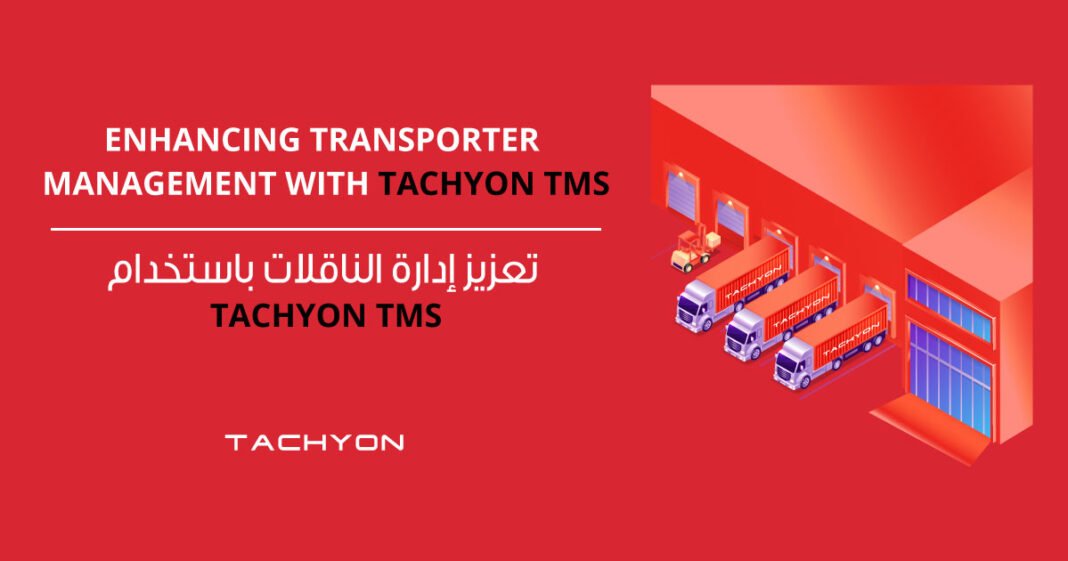Transporter management is a critical aspect of logistics and supply chain operations. With growing demands for efficiency, timely deliveries, and cost reduction, businesses need advanced tools to streamline their transportation processes. A Transport Management System (TMS) offers a comprehensive solution to manage, monitor, and optimize transportation activities. From route planning and tracking shipments to automating paperwork and improving communication, TMS transforms the way companies handle their logistics. By leveraging real-time data and automation, businesses can enhance operational efficiency, reduce errors, and ultimately provide better service to their customers. In this post, we’ll explore the benefits of TMS in transporter management.
What is TMS?
Transportation management tracks a product along its supply chain, from source to delivery. The duty of controlling the delivery of goods is essential to supply chains worldwide, necessitating extremely systematic and effective management. Supervisors with good managerial, relationship-building, and problem-solving skills make their way into this area. Companies in a variety of industries require experienced transportation managers, particularly in manufacturing, distribution, technology, and waste management. These sectors rely on transportation management, logistics workers, and experts to ensure that delivery and pickup supply chains go efficiently.
Enhancing Transporter Management
Since technology has given fleet operators substantially more control over their moving resources, monitoring several dashboards spread across different platforms—some interacting via different data standards and others focusing on different aspects of the business—can be overwhelming. With the transportation industry’s growing intricacy and recent supply chain issues, fleets are seeking technological solutions to assist them continue to gain business and flourish. Fleet management entails more than just pixels on a map.
TMS Helps carriers and shippers!
TMS is a powerful and sophisticated program that controls fleet and logistics services in Saudi Arabia over a digital network. It simplifies transportation systems and gives you quick dashboard access to track fleet movement using application capabilities. It is done using technology-based, sustainable approaches to improve the functionality and visibility of shipping procedures. You can manage the fleet, freight, and shipping based on your needs and desires. TMS’s interactive map connects data sources to track routes and performance. This innovative equipment boosts your company’s efficiency and profitability. Automation improves efficiency and performance while also contributing to the development of ecosystem-appropriate standards. You can operate more efficiently by enhancing on-time deliveries. The shipping process should be transparent. A digital platform allows you to maximize resource use, which, of course, increases revenue. An advanced TMS helps carriers and shippers optimize and regulate fleet planning and transport networks.

TMS New Technologies
Cloud computing has made TMS systems more accessible to enterprises while also expanding the technology’s features and customization options. However, additional technologies have substantially impacted TMS systems and the transportation management industry. A modern transportation management system, reinforced with new technology, provides automation, intelligence, and digital access for improved control. The following technologies are transforming the logistics system significantly.
- Artificial intelligence (AI)
- Machine Learning
- Internet of Things (IoT)
Advantages of Transporter Management
TMS is a modern solution for managing transportation systems that includes simple features and tools. It offers numerous benefits to transporters. You can cut costs for many logistics processes. It facilitates communication among logistical parties and stakeholders. It makes supply chain management easier at several sites by allowing them to collaborate and work with various carriers. Automation accelerates and secures the shipment process by utilizing best practices for accurate scheduling and dispatching.
There is an enhancement in visibility and security. Less manual chores and fewer human interventions save time and money. You can track the path and performance of your shipment operation. TMS allows you to track and optimize work. Logistics activities are not only local but global. The collaboration allows you to run your import and export operations while adhering to Saudi Arabia’s legislation and norms. It delivers market analysis trends and prediction suggestions to improve work quality and outcomes. Data analytics has demonstrated the benefits and advantages of taking predictable actions in response to market requirements and requests.
With a more positive outlook, you can grow your business. You can improve the customer experience and provide unique solutions to delight your clients. LoT fleet management with digital help is the system’s finest feature. Adaptive innovative solutions and machine algorithms are capable of prediction and forecasting. TMS’s capabilities and technology make it easier to manage blockchain and supply chains. It has helped logistics players and stakeholders a lot.
Conclusion
In conclusion, utilizing a Transport Management System (TMS) for transporter management significantly enhances the efficiency and effectiveness of logistics operations. By optimizing route planning, tracking shipments in real-time, and automating various processes, TMS helps reduce costs, improve delivery times, and increase overall productivity. It also enables better communication between stakeholders and ensures compliance with industry regulations. As transportation demands continue to grow, adopting a TMS is essential for businesses looking to streamline their logistics, stay competitive, and meet customer expectations. Embracing TMS solutions is a key step toward building a more agile and responsive supply chain.


